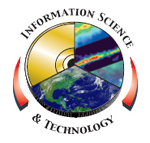
Please Note: The content on this page is not maintained after the colloquium event is completed. As such, some links may no longer be functional.
Dr. Ruzena Bajcsy
IT2: An Information Technology Initiative for the 21st Century
Wednesday, November 29, 2000
Building 3 Auditorium - 3:30 PM
(Refreshments at 3:00 PM)
Goddard's Office of the Assistant Director for Information Sciences continues the Fall 2000 GSFC Information Sciences and Technology (IS&T) Colloquium Series with Dr. Ruzena Bajcsy, Assistant Director for Computer and Information Science and Engineering (CISE(link is external)) at the National Science Foundation (NSF(link is external)). Dr. Bajcsy's topic is IT2: An Information Technology Initiative for the Twenty-first Century - NSF Plans for Implementation. Her presentation is divided into two parts. In the first, the IT2 Initiative is explained in some detail. Dr. Bajcsy will elaborate on the scientific content of this program, pose some open questions, and outline the path NSF plans to pursue to achieve the program goals. In the second part of the presentation, she will discuss the identity of computer science as a scientific discipline and its relationship to other physical sciences, such as physics, chemistry, and molecular biology. Her remarks will also focus on the "information science of computer science" and, in particular, what lessons we can derive from these other disciplines with respect to the representation of information content. Finally, Dr. Bajcsy will speculate on the future of this discipline and the challenges stemming from it, with the hope of conveying the excitement of perhaps a new emerging discipline anchored in information science.
Dr. Bajcsy ("buy chee") was named NSF's Assistant Director for Computer Information Science and Engineering Directorate on December 1, 1998. As head the directorate, she manages a budget of approximately $300 million annually. Dr. Bajcsy is the sixth person to be named to this position since the directorate was created in 1986. She comes to NSF from the University of Pennsylvania where she was a computer science and engineering professor. Dr. Bajcsy is a pioneering researcher in machine perception, robotics and artificial intelligence. She is currently a professor both in the Computer and Information Science Department and in the Mechanical Engineering and Applied Mechanics Department at Penn and is a member of the Neuroscience Institute in the School of Medicine. She is also director of the university's General Robotics and Active Sensory Perception Laboratory, which she founded in 1978. Dr. Bajcsy has done seminal research in the areas of human-centered computer control, cognitive science, robotics, computerized radiological/medical image processing and artificial vision. She is highly regarded not only for her significant research contributions but also for her leadership in the creation of a world-class robotics lab, recognized worldwide as a premiere research center. She is especially known for her wide-ranging, broad outlook on the field and cross-disciplinary talent and leadership, successfully bridging such diverse areas as robotics and artificial intelligence, engineering and cognitive science.
Dr. Bajcsy is a member of the National Academy of Engineering as well as the Institute of Medicine. She received her master's and Ph.D. degrees in electrical engineering from Slovak Technical University in 1957 and 1967, respectively. She received a Ph.D. in computer science in 1972 from Stanford University, and since that time has been teaching and doing research at Penn's Department of Computer and Information Science. She began as an assistant professor and within 13 years became Chair of the department. Prior to the University of Pennsylvania, she taught during the 1950s and 1960s as an instructor and assistant professor in the Department of Mathematics and Department of Computer Science at Slovak Technical University in Bratislava. She has served as advisor to more than 20 Ph.D. recipients.
IS&T Colloquium Committee Host: Dr. Milt Halem
